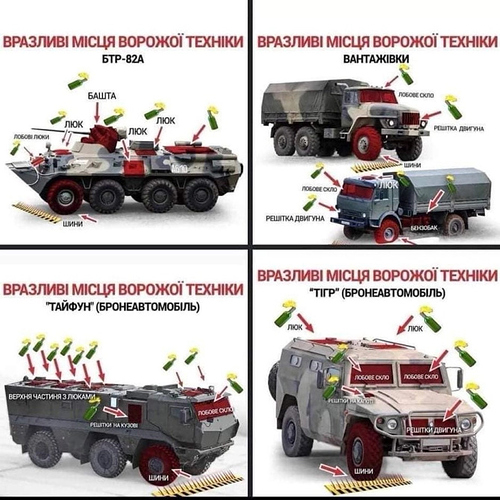by ROBB SMITH
If you tell me that throughout the 21st century we will continue to have a set of nations armed with nuclear weapons, I will tell you there’s a 99% chance that we end up in a nuclear conflict eventually. Human psychology is belligerent. And as far back as Plato’s warning in the Republic, we understand it is inevitable that some fraction of political bodies evolve towards authoritarian regimes. Ergo, it can’t be at all surprising that we face the situation we do today, where a nuclear (if not economic or cultural) superpower is leveraging its nukes to act in the vein of a 19th century imperialist. Beyond the tragic loss of life in the war proper, the strategic problem this creates for the world order is immense: what should the world do when 21st century nuclear superpowers, especially those governed by non-accountable and non-checkable autocrats, begin to violate the prevailing international order and attempt to conquer sovereign foreign nations? Today it’s Russia, tomorrow it could be North Korea or China; this is not a problem that goes away regardless of what happens in the next few months. Rather it is better understood as an emergent geopolitical life condition of the late Information Age, what integralists call the Green structure of evolution. It pairs Information Age technology, like nuclear weapons, with challenges to Information Age world order legitimacy (like the United Nations), with Age of Empire forms of leadership, conquest and claimed legitimacy. Putin tries to cover his ambition under a critique of the West—and a thorough and substantive critique there surely is—but it doesn’t change the fact there is no legitimate justification using contemporary moral calculus to invade a peaceful sovereign neighbor.
Three Scenarios Ahead
So far this horrific struggle has played out as I’ve expected. I thought there was a very good chance Putin would invade, that he might face more military challenges than people predicted, that the global alliance would rapidly cohere, and that the entire decision would come to look like a massive strategic mistake. Since the beginning, it’s been clear there were only a few possible outcomes, two of which are either a coup or a nuclear mushroom cloud. The pain of international financial sanctions will so destroy the Russian economy that Russian elites, perhaps even the Russian “street” (no matter that they are fairly manipulated by Kremlin propaganda), might end up taking Putin out of power. If that happens, it will open up an historic opportunity to invite Russia into the league of liberalizing nations, and a full-scale Marshall Plan to help it become a modern, sophisticated nation will be warranted. In this scenario, ironically enough, Putin inadvertently succeeds in ending NATO, but not for the reason he hoped. Incidentally, the Russian people are proud, majestic and brilliant, so I have long wondered what Russia would be today if a Russian version of Lee Kwan Yew had been empowered in the early 1990s; after 30 years it might be one of the most powerful, free and agile nations in the world today.On the other hand, if Putin is able to rally the Russian street through propaganda, keep elites in check, and remain in power through his formidable Praetorian guard and state security apparatus, do we end up in an escalatory standoff that ends in a mushroom cloud—probably tactical, or God forbid between superpowers? The US and its NATO allies are wise to keep themselves out of a military engagement in Ukraine. I don’t believe reports that Putin is irrational or deranged, I think he’s as coldly calculating as ever, but I do not for one moment doubt what his desperate and aggrieved resolve might prompt him to do were the alliance to engage Russia militarily.
So short of a coup or a mushroom cloud, the third outcome seems most probable, which is Ukraine falls and becomes temporarily captive to Russia, becoming a national, larger, and previously-sovereign version of what Russia did with Crimea. The Russian military can likely succeed in its initial conquest but fail perpetually to hold its territory in the face of a vicious insurgency, one that will continue to galvanize global public opinion against Russia, keeping it stuck as a total pariah in the community of nations. Here, we end up in something far worse than a Cold War standoff. Putin is able to hold onto power, but Russia itself slouches ever more towards a completely failed state, ostracized on every level (at least North Korea enjoys the benefit of very few people paying attention to it). In this scenario—in which Russia increasingly degrades toward a failed state, finding itself with skyrocketing inflation and wracked by an economic depression—a whole other analysis is warranted about the misbehavior that Putin engages in to try to get the country back on track, none of it good. But let’s space our disasters and leave that for another day.
READ MORE HERE:
